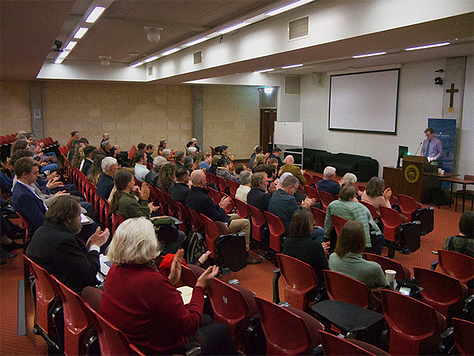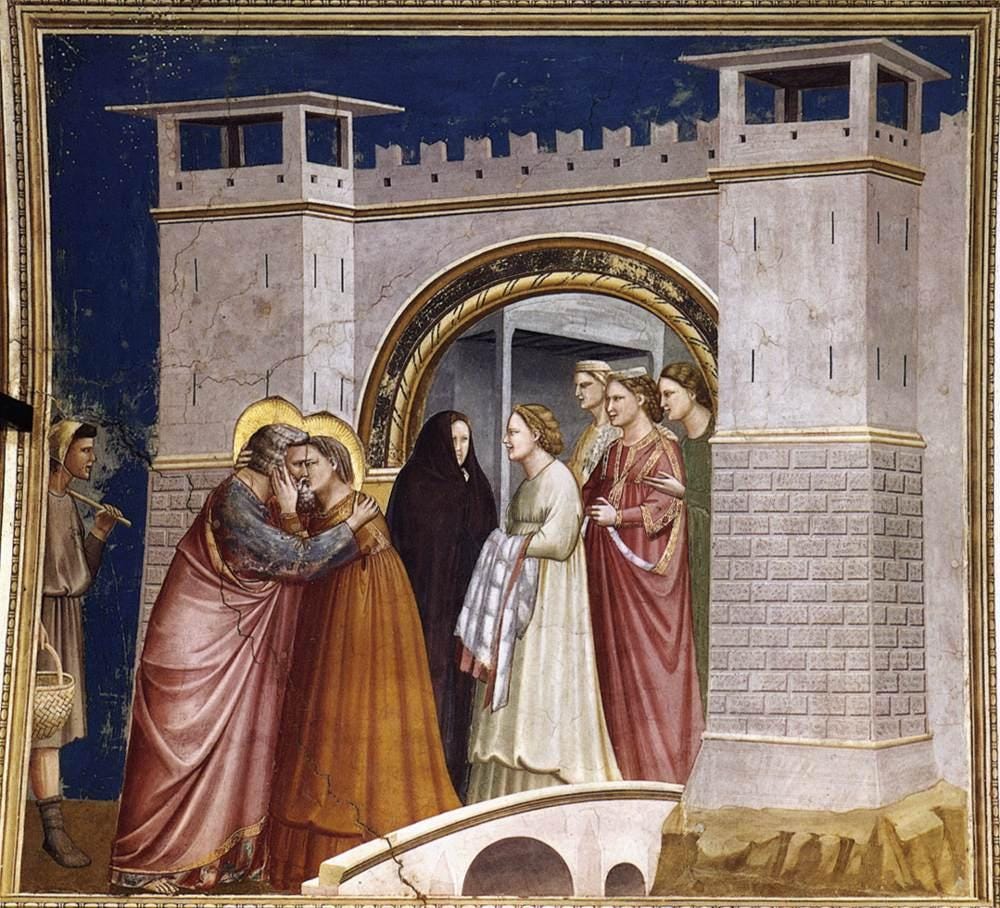Max Liebermann, Dutch Village road/Street in Zandvoort, 1880
Hopefully many of our readers have been able to attend our conference on Home: Family. Place. Economics. which we were fortunate to host at the beautiful campus of Notre Dame University in Fremantle. We are absolutely thrilled with how the conference went and the many exciting papers and conversations it hosted over the past few days. A full write-up of the conference, along with a conference reading list, will be sent out in due course. For the time being, we have some images of Thursday night’s public lecture below.
If you were unable to attend, please rest assured that plans are already underway for up-coming events which we will be excited to share in the near future.
In deference to the planning and execution of the conference, we have elected to include some previous published blog posts rather than new writings. Fortunately, our website is starting to accumulate a good few posts from which to chose. We are unreasonably proud of it and grateful for every reader we get!
Fittingly, the article from Tom concerns establishing family traditions in the suburbs. While not as neatly meeting the conference theme, I have included an article from myself that discusses the harvesting of rainwater which (at least indirectly) might concern the home.
It is otherwise a shorter newsletter this month, but we would still appreciate it if you could share with anyone who might be interested. It really does help us to keep the Society going.







From the blog
On the Harvesting of Rainwater: Or the efficiencies of small systems
by Daniel Matthys
There is a scene in one of Wendell Berry’s Port William novels where the characters of the town barber, Jayber Crow, and the elder of the town, Old Jack, are compared. Rain drips from the roof of the barber shop to the ground to the disapproval of Old Jack who believes that a man with a roof ought to have gutters, and that a man with gutters ought to have a cistern to store the water in.
This article is written in the spirit of Old Jack.
(read on)
Returning to the Real: Establishing family traditions in suburbia
by Tom Gourlay
The trees were likely planted some 50+ years ago, and we are particularly grateful for that. I’d never expected to be wandering the neighbourhood picking fruit, and in such quantities, but here we were. In fact, this was the second year we’ve done it, and the few days we were feverishly busy at it ended with a thankful prayer for the souls of the likely Italian migrant families who planted those olive trees all over Fremantle and surrounds.
(read on)
On our nightstands
Life and Fate, by Vasily Grossman
From the blurb: Based around the pivotal WWII battle of Stalingrad (1942-3), where the German advance into Russia was eventually halted by the Red Army, and around an extended family, the Shaposhnikovs, and their many friends and acquaintances, Life and Fate recounts the experience of characters caught up in an immense struggle between opposing armies and ideologies. Nazism and Communism are appallingly similar, 'two poles of one magnet', as a German camp commander tells a shocked old Bolshevik prisoner. At the height of the battle Russian soldiers and citizens alike are at last able to speak out as they choose, and without reprisal - an unexpected and short-lived moment of freedom. Grossman himself was on the front line as a war correspondent at Stalingrad - hence his gripping battle scenes, though these are more than matched by the drama of the individual conscience struggling against massive pressure to submit to the State. He knew all about this from experience too. His central character, Viktor Shtrum, eventually succumbs, but each delay and act of resistance is a moral victory. Though he writes unsparingly of war, terror and totalitarianism, Grossman also tells of the acts of 'senseless kindness' that redeem humanity, and his message remains one of hope. He dedicates his book, the labour of ten years, and which he did not live to see published, to his mother, who, like Viktor Shtrum's, was killed in the holocaust at Berdichev in Ukraine in September 1941.
Macbeth by William Shakespeare
From the blurb: One night on the heath, the brave and respected general Macbeth encounters three witches who foretell that he will become king of Scotland. At first sceptical, he’s urged on by the ruthless, single-minded ambitions of Lady Macbeth, who suffers none of her husband’s doubt. But seeing the prophecy through to the bloody end leads them both spiralling into paranoia, tyranny, madness, and murder.
This shocking tragedy - a violent caution to those seeking power for its own sake - is, to this day, one of Shakespeare’s most popular and influential masterpieces.
St Joachim and Anne, 26 July
Giotto di Bondone, Legend of St Joachim, Meeting at the Golden Gate, 1305
According to longstanding Christian tradition, Saints Joachim and Anne are revered as the parents of Mary. In a tradition that parallels the stories of Sarah, Hannah, and Elizabeth, St Anne was childless into her old age. Her husband, Joachim, fasted for 40 days, whereby an angel revealed to him that his wife would bear a child. The image above is an rendition of the ‘meeting at the Golden Gate’ of Jerusalem, where Anne learnt that she would have a child.
In the Eastern Orthodox tradition, Anne and Joachim are ascribed the title Ancestors of God, and both the Nativity of Mary and the Presentation of Mary are celebrated as two of the twelve Great Feasts of the Orthodox Church.
St Joachim is the patron saint of (among others) grandfathers and married couples. St Anne is patron of mothers, grandparents, and loving homes. The commemoration of this holy couple is a very relevant feast day for those of us who joined in our recent conference on Home.






